Testing for Integrity, Quality and Reliability
If you're looking for a long-lasting, simple way to communicate with your target audience, you're in the right place.
There's a good reason Daktronics is the top digital display manufacturer. It's called Daktronics Lab Services, our in-house testing facility where we perform rigorous testing on LED display components, right at our headquarters in Brookings, SD.
At Daktronics Lab Services, we do everything from measure image quality, test performance and even stress components to complete failure to discover vulnerabilities. Our engineers use this data to improve and develop our indoor and outdoor products to ensure every LED display board is designed with unmatched integrity, quality and reliability - so you can count on our technology for years to come.
Daktronics provides end-to-end high-quality testing on components, based on decades of experience around the world. This far exceeds typical compliance requirements, which often fall short of customer expectations.
Why Do We Test Differently?
Displays are complicated, which is why we test at many levels, from full displays to individual components. If your display doesn't function properly, the consequences could be as harsh as bad press coverage and lost revenue or as dire as chaos on the road.
Daktronics has thousands of digital LED video display technology installations around the world. Our rigorous testing procedures provide peace of mind that each one performs exceptionally for every moment that matters during its entire lifespan.
- Long-term cost savings and excellent ROI
- Lifetime durability and low maintenance
- Energy efficiency
- Reliable LED displays that last
- Ease of maintenance and serviceability
- High visibility in various weather conditions
![]()
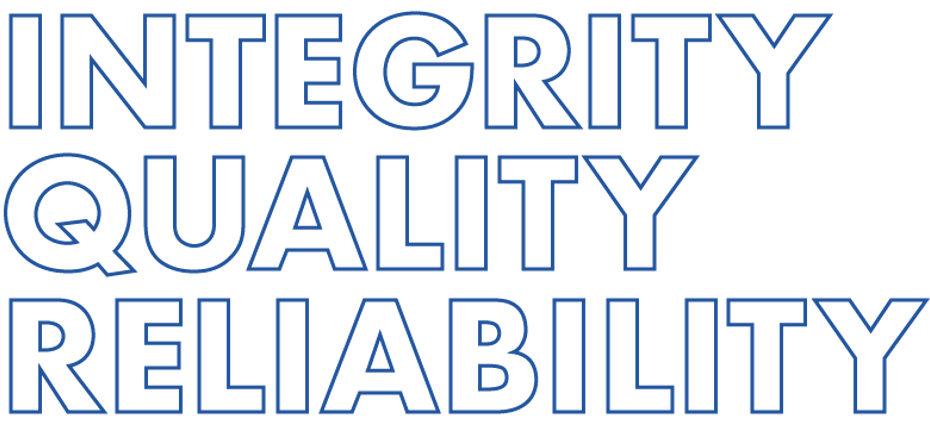
Our Testing Process
Our Lab Services professionals are dedicated to their craft, collaborating with each other to draw on a wealth of knowledge and experience, using state-of-the-art equipment. The following represents a sample of our comprehensive testing process.
Integrity Testing
By exposing components to various conditions, we measure the integrity of product performance characteristics such as optical properties, power usage, efficiency and much more.
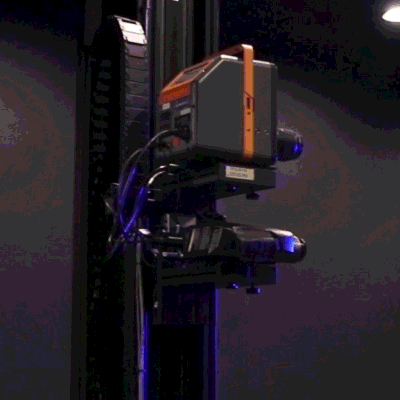

Light and Image
We measure light output and color properties of modules in the Image Quality lab. This provides performance data so we know exactly how the display will perform from any vantage point, as well as evaluate how our product design stands up to challenges such as sunlight or overhead lighting. We can even provide 3D photometric files for lighting designers who want more details.
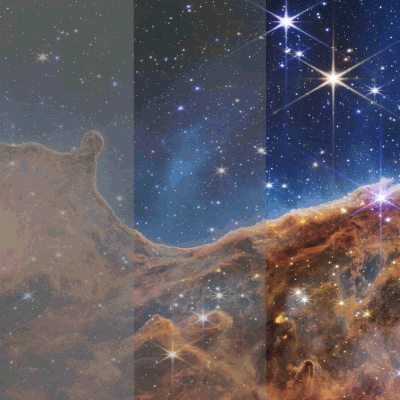

Color and Contrast
Examining the luminous flux and color properties of individual LED samples in the Integrating Sphere helps verify supplier specifications.
We use a controlled environment and consistent lighting conditions to measure the effects of ambient light on contrast performance – one of the best indicators of a display’s contrast in real-world environments. This is listed on spec sheets as ambient contrast ratio (ACR).
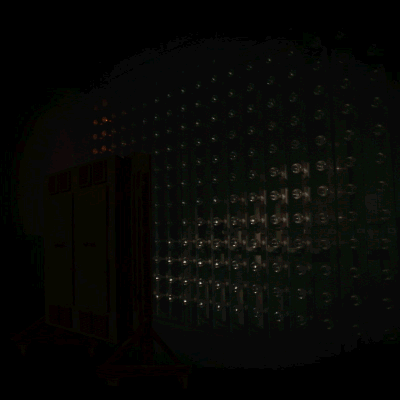

Compatibility and Thermal Performance
We use an electrical radiation absorbing chamber to ensure products comply with federal and international regulations on electromagnetic noise, so our equipment won’t interfere with internet, radio or cellular signals.
The large-scale environmental test chamber verifies display heating and cooling systems using a full wall of lights to simulate full sun exposure on our products so we can determine reactions to heat and solar radiation and ensure products will keep working in all environments.
Quality Testing
These types of tests make sure products we send out the door are consistently constructed to Daktronics standards.
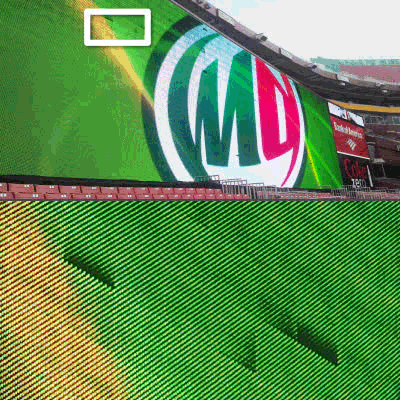

Consistency
Display cabinets, modules and other components need to meet tight requirements. We use our Coordinating Measurement Machine to test aluminum and steel sheet metal, aluminum extrusion, plastic louvers and housings, and even the bends in metal measurements, down to a tolerance of ±3 micrometers.
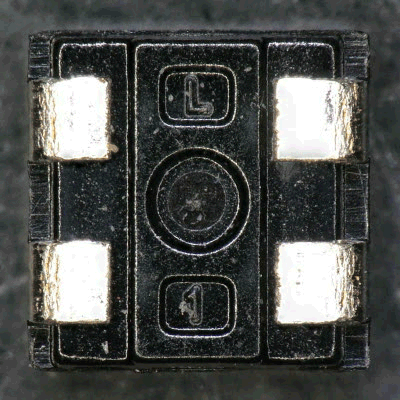

Cleanliness
Our C3 (Critical Cleanliness Control) enables us to detect corrosive elements (such as salts) in electronics and other components from our suppliers. This helps determine where the elements are introduced during the manufacturing process, eliminating issues right within our factory.
Reliability Testing
By running our products through this series of tests, we determine how long they maintain their image quality as they age – so our customers can be confident they will look incredible for years to come.
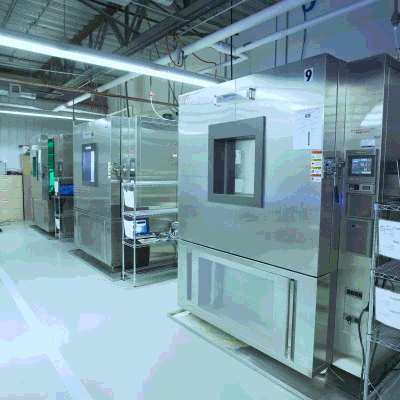

Weather and Ultraviolet Light Challenges
To check and prevent degradation of materials such as plastic, silicone, epoxy, paint and LEDs, we expose them to ultraviolet light and condensation in our UV weathering tester.
The Temperature & Humidity Chamber simulates extreme environments to test component sensitivity to humidity, corrosion, hydrolysis and electrical changes. With temperatures ranging from -40°C to 100°C (-40°F to 212°F) and humidity levels between 10% and 98%, the test provides insight into expansion resilience and solder bond strength.
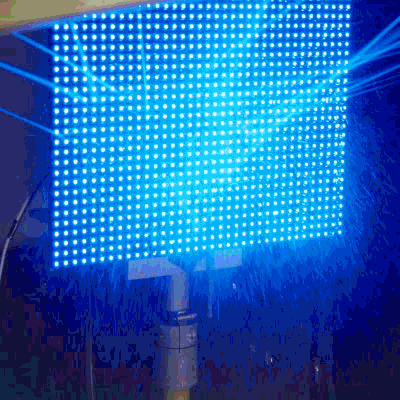

Water Resistance
Our modules have to stand up to heavy rain and wet conditions. We take water testing to new depths, with pressurized 360° water jets that spray enclosures, specialized water detection inside the components, and even submerging modules under a meter of water for 30 minutes to replicate severe conditions.
The salt fog chamber simulates coastal air conditions by creating fog with a 5% salt solution and an ambient temperature of 95°F (35°C). Components endure prolonged exposure to assess their capacity to withstand corrosive effects common in these environments. This testing provides the knowledge to create components that enable our displays to be installed pool side, or outdoors in rainy or coastal climates – even in regions more susceptible to extreme weather such as hurricanes, torrential rain, and flooding.
Supplier Testing
Part Verification and Failure Analysis
Testing is crucial when vetting new vendors, purchasing from a distributor rather than a manufacturer, and when supply chains are tight. We scrutinize components, design and materials to verify their authenticity.
Also, when there are emerging designs and technologies in research and development, the Lab thoroughly examines them to ensure they live up to expectations.
If parts fail in the field, we analyze them in our failure analysis lab to determine the cause so we can fix the problem and prevent it from happening again.
A Look Inside the Lab...
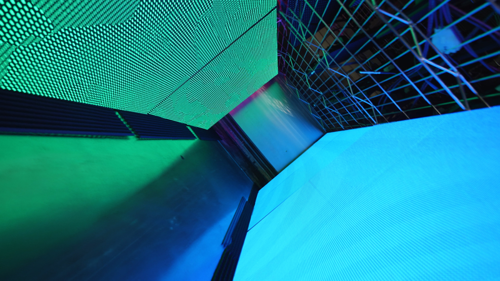
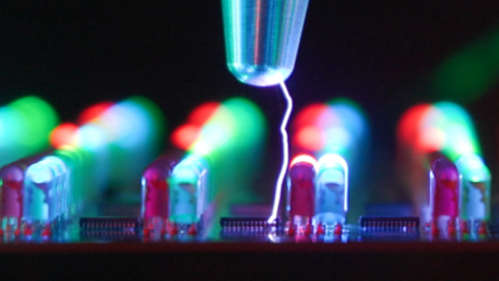
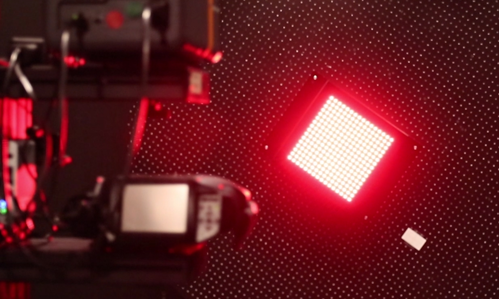
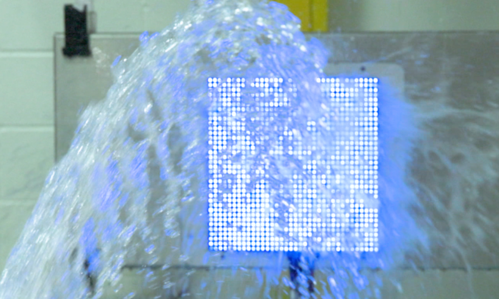
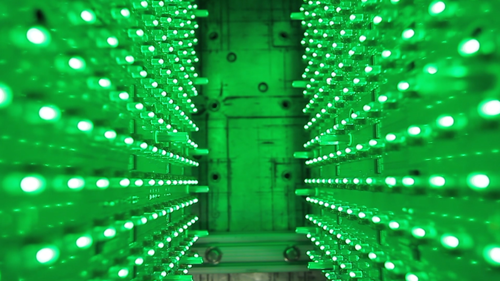
FAQs About LED Display Testing
ROI
Q: What’s the return on investment (ROI) for an LED display?
A: With long lifespans, low maintenance, and consistent performance, LED displays offer strong ROI. Daktronics LED signs are designed to deliver high ROI by enhancing visibility and engagement, leading to increased revenue. Our rigorous testing ensures long-term reliability and performance, minimizing maintenance costs and maximizing uptime.
Q: How long do LED video displays last? How reliable are Daktronics displays for long-term use?
A: High-quality LED displays, like those tested through Daktronics Lab Services, can last many years. Our displays undergo comprehensive reliability testing, including accelerated weathering tests and water resistance tests. This ensures that our products remain operational and visually appealing even after years of exposure to sunlight, rain, and humidity.
Q: What makes Daktronics displays different from other LED signs?
A: It’s our testing, which leads to better design choices. Daktronics Lab Services goes beyond standard certifications to simulate years of wear, helping ensure your display holds up in the real world, not just in theory.
Durability
Q: How long do LED signs or video displays typically last?
A: The lifespan of an LED display depends on many factors, including the quality of materials, components, severity of usage, installation environment and the engineering behind the design. Multiple accelerated test methods are used to characterize how soon parts will degrade. This is then compared to potential operating environments worldwide.
At Daktronics Lab Services, we go beyond theoretical projections. We test and quantify how design choices impact longevity so our engineers can make informed decisions that balance cost, performance, and lifespan, ensuring each product is optimized for real-world reliability and value. Our rigorous testing helps ensure that when you invest in a Daktronics display, you get a product built to perform for years to come.
Q: What factors affect the lifespan and durability of LED signs?
A: Key factors include component quality, environmental exposure and how accurate the reliability data is that designers have at their disposal. Daktronics tests factors such as heat, moisture, and UV exposure to ensure our products withstand environmental challenges and maintain optimal performance.
Q: How durable are LED displays in extreme weather conditions, and how do I know if a display will last in my climate?
A: Daktronics LED displays are rigorously tested for durability, including exposure to extreme temperatures, moisture, and UV light, so they can withstand harsh environmental conditions and maintain their performance and appearance over time.
Maintenance and Serviceability
Q: How can I prevent downtime and ensure my LED display operates efficiently?
A: Implementing a maintenance schedule that includes regular inspections, cleaning, and prompt repairs can minimize downtime. Daktronics Lab Services' rigorous testing ensures our products are built to withstand various conditions and even washing, reducing the likelihood of unexpected failures.
Q: Are Daktronics LED signs easy to repair if something goes wrong?
A: Yes, Daktronics LED signs are designed for easy module replacement. Our advanced mapping software can automatically adjust for new modules, ensuring consistent luminance and color balance. Our support team is available to assist with any repairs.
Q: What kind of maintenance do LED signs need?
A: LED displays require occasional maintenance such as cleaning, diagnostics, and part replacement. Our Lab Services team builds in serviceability through early testing and insights into component longevity. We also provide end-to-end reliability testing to provide an accurate recommendation for spare and replacement parts for the life of a product.
Long-term Quality, Integrity, Reliability
Q: How does Daktronics ensure display quality before shipping and installation?
A: We test each display in controlled lab environments, evaluating electrical stability, thermal resistance, color accuracy, and more, ensuring consistent reliability and image quality from day one.
Q: Will the image quality of my Daktronics LED display remain consistent over time?
A: Daktronics Lab Services professionals measure light output and color properties to ensure superior image quality over time. This includes testing for brightness, contrast, and color accuracy, ensuring that your displays look vibrant and clear from any vantage point, even after years of use.
Regulatory Compliance
Q: Are Daktronics LED displays compliant with federal and international regulations?
A: Yes, Daktronics Lab Services uses an electrical radiation absorbing chamber to ensure products comply with federal and international regulations on electromagnetic noise. This prevents interference with internet, radio, or cellular signals, ensuring seamless operation in any environment.
Schedule Your Tour
To see our testing in action, we invite you to contact your Daktronics sales rep to set up a tour. Or fill out the form below so we can reach out to you.